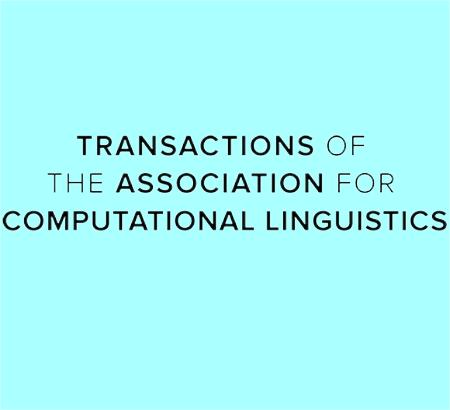对非言语选择的期望预测语用推理
IF 4.2
1区 计算机科学
Q2 COMPUTER SCIENCE, ARTIFICIAL INTELLIGENCE
Transactions of the Association for Computational Linguistics
Pub Date : 2023-04-07
DOI:10.1162/tacl_a_00579
引用次数: 3
摘要
抽象标量推断(SI)是人类如何基于未言明的替代品来解释语言的一个标志性例子。虽然实证研究表明,人类的SI率是高度可变的——无论是在单个量表的情况下,还是在不同的量表之间——但很少有建议能够定量解释跨量表和量表内的变化。此外,尽管人们普遍认为SI是通过对未言明的替代品进行推理而产生的,但人类是将替代品作为语言形式进行推理,还是在概念层面进行推理,仍存在争议。在这里,我们测试了一种解释尺度内和尺度间SI率的共享机制:上下文驱动的对未言明的替代方案的期望。使用神经语言模型来近似人类的预测分布,我们发现,作为一种替代方案,强缩放对象的期望性可以捕获SI率。然而,至关重要的是,只有在基于意义的替代观点下,预期性才能稳健地预测跨尺度的变化。我们的研究结果表明,语用推理源于上下文驱动的对替代方案的期望,这些期望在概念层面上起作用。1本文章由计算机程序翻译,如有差异,请以英文原文为准。
Expectations over Unspoken Alternatives Predict Pragmatic Inferences
Abstract Scalar inferences (SI) are a signature example of how humans interpret language based on unspoken alternatives. While empirical studies have demonstrated that human SI rates are highly variable—both within instances of a single scale, and across different scales—there have been few proposals that quantitatively explain both cross- and within-scale variation. Furthermore, while it is generally assumed that SIs arise through reasoning about unspoken alternatives, it remains debated whether humans reason about alternatives as linguistic forms, or at the level of concepts. Here, we test a shared mechanism explaining SI rates within and across scales: context-driven expectations about the unspoken alternatives. Using neural language models to approximate human predictive distributions, we find that SI rates are captured by the expectedness of the strong scalemate as an alternative. Crucially, however, expectedness robustly predicts cross-scale variation only under a meaning-based view of alternatives. Our results suggest that pragmatic inferences arise from context-driven expectations over alternatives, and these expectations operate at the level of concepts.1
求助全文
通过发布文献求助,成功后即可免费获取论文全文。
去求助
来源期刊
CiteScore
32.60
自引率
4.60%
发文量
58
审稿时长
8 weeks
期刊介绍:
The highly regarded quarterly journal Computational Linguistics has a companion journal called Transactions of the Association for Computational Linguistics. This open access journal publishes articles in all areas of natural language processing and is an important resource for academic and industry computational linguists, natural language processing experts, artificial intelligence and machine learning investigators, cognitive scientists, speech specialists, as well as linguists and philosophers. The journal disseminates work of vital relevance to these professionals on an annual basis.

 求助内容:
求助内容: 应助结果提醒方式:
应助结果提醒方式:


